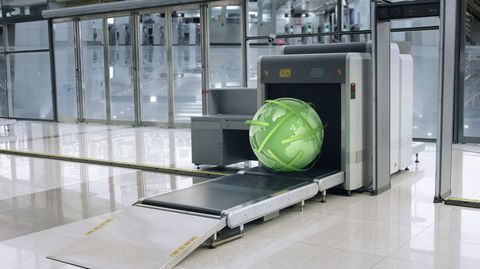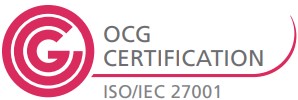Export Control Management - Denied Party Screening, Export Control Classification and more
Overview
Export control compliance is a challenging task for exporting companies. Global supply chains are constantly at risk because companies must adhere to numerous regulations which are quite complex and change frequently. This includes export control classification, denied party screening / restricted party screening resp. checking sanctions lists and embargos, determining licensing requirements (including license management), as well as checks of end use and/or end users. Therefore, commitment to export control compliance and effective risk management requires the use of appropriate software tools.
MIC’s Export Control Management (MIC ECM) allows for central management of all company transactions under export control law and detailed checks of business transactions with respect to the relevant regulations. Clear status information and comprehensive check reports for each transaction ensure a complete and consistent audit trail. This includes screening of the persons and organizations involved in a given transaction against different sanctions lists, checking of the goods in consideration of dispatch and destination country, and documentation of end use and end users.
MIC Export Control Management modules enabling Export Compliance Automation
- Central administration of all information relevant for export controls
- Supports both interactive and transaction-oriented real-time screening of transactions
- Configurable transaction types (e.g. export, customer visit, data transmission)
- Embargo check (total embargos and screening based on tariff number, export control classification, country of dispatch and destination, business partners)
- Check of end user and end use including configurable red flag questionnaires
- Assessment of licensing requirements
- Assessment of import control regulations
- ELAN-K2 integration for request of licenses
- Use of general licenses
- Administration & monitoring of individual licenses (deadlines, obligations, approved quantities/values, documentation of use, deduction by quantity/value, etc.)
- Configuration of rules for application of licenses
- US re-export checks
- De-minimis calculation
- Manual compliance checks
- Overview and full transparency of the entire process (workflow & escalation management)
- Interface integration with different ERP systems (e.g. SAP) including blocking of suspicious transactions directly in ERP systems
- Integration with other MIC modules (MIC DPS, MIC CCS ECC, MIC-CUST® Import and Export)
- Up-to-date export control content through integration of MIC’s Global Trade Content Service (GTCS) for different countries (e.g. country lists, reasons for control, embargo regulations)
- Complete audit trail
- Standard reporting as well as data analytics
Denied party screening: MIC DPS
- Denied party screening against sanctions lists based on a configurable screening algorithm and configurable screening profiles
- Supports interactive, transaction oriented real-time screening as well as batch screening
- Automation by “white lists” and “positive lists”
- Daily updated content of sanctions lists by integration of MIC’s Global Trade Content Service (GTCS) for EU, US, UN, JP, UK, CH and many other sanction lists
- Screening against internal “blacklists” and keywords
- Ultimate Beneficial Owner (UBO) screening for more than 200 million companies worldwide with automated interfaces to the Orbis data base of Bureau van Dijk (BvD) as well as Dun & Bradstreet's (D&B) Bisnode database
- Integration with MIC-CUST® and/or ERP systems (e.g. SAP) for automatic blocking of the consignment in the event of a positive screening result
- Definition of stop words to be ignored for screening, e.g. GMBH, LTD, LIMITED etc.
- Comprehensive audit trail of screening results and decisions including individual documentation (file attachments and comments)
- Standard reports included
- Overview and full transparency across the entire process (workflow & escalation management)
Export control classification: MIC CCS ECC
- Identification of controlled products
- Manage an unlimited number of export control classifications for each product. (e.g. ECCN, German Export List number, relevance for embargo)
- Workflow management for export control classification tasks
- Automated and/or semi-automated allocation of export control classifications based on intelligent suggestion logic using artificial intelligence and machine learning (AI&ML), as well as user-defined selection and matching rules
- Up-to-date export control commodity list content including correlation tables by integration with MIC’s Global Trade Content Service (GTCS) for multiple countries (e.g. EU Dual-Use Regulation, German Export List, US Commerce Control List, US Munitions List or in general item-lists that are subject to the Export Administration Regulations (EAR))
- Support of correlation tables
- Complete audit trail in case of changes
01
Central administration
of all information relevant for export control
04
Daily updated content
by integration of MIC’s Global Trade Content Service
02
Overview
across the entire process and thus full transparency
05
Ultimate Beneficial Owner (UBO)
screening for more than 200 million companies worldwide
03
Comprehensive audit reports
for each transaction ensure a consistent audit trail
06
Detailed examination
of business transactions based on relevant export control regulations incl. blocking of suspicious transactions in ERP systems (e.g. finance, logistics) through seamless return interfaces


